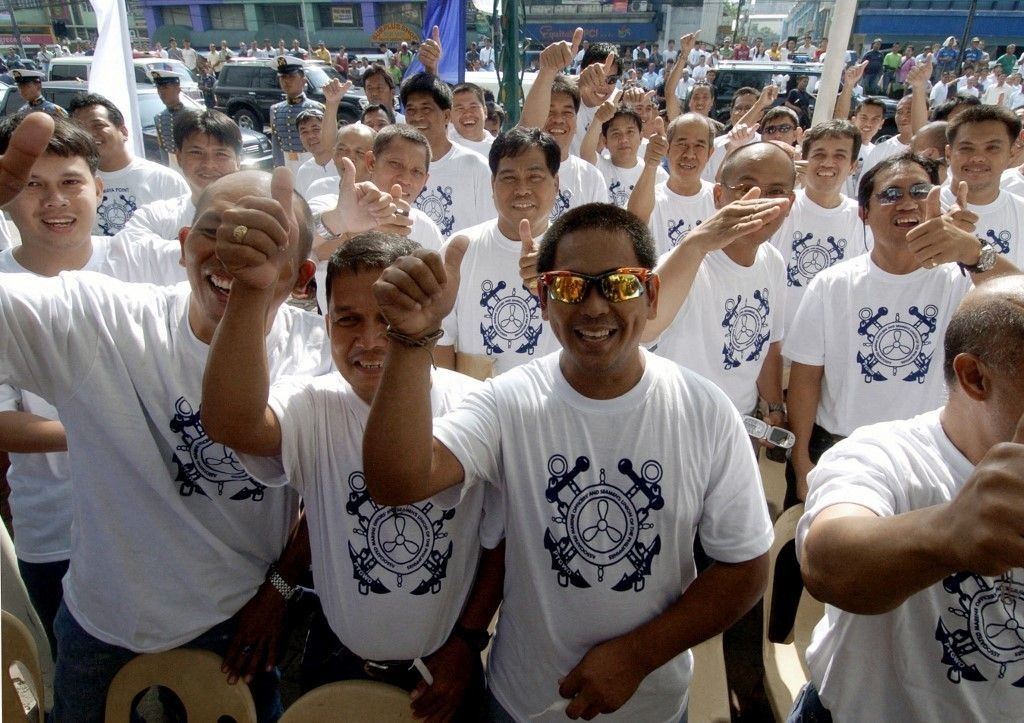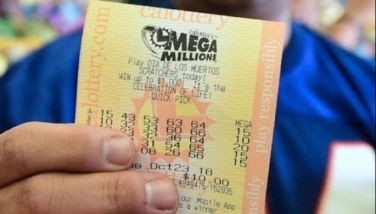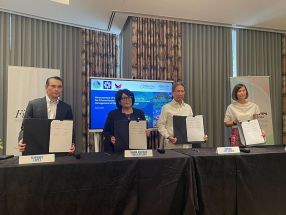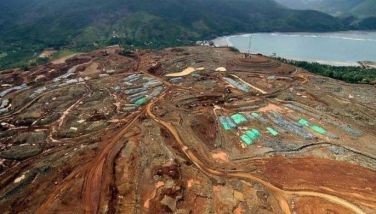The barriers to Marcos' vision of upskilling seafarers for greener shipping

MANILA, Philippines — President Ferdinand “Bongbong” Marcos Jr. on Monday reiterated the need to upskill and reskill Filipino seafarers so they can keep pace with the global shipping industry's green transition.
Marcos said the Commission on Higher Education and the Maritime Industry Authority—agencies in charge of overseeing the country's maritime schools—should work on the "upskilling and reskilling of Filipino seafarers to prepare them for the shift of ocean-going vessels from using conventional fuel sources to green ammonia between 2030 to 2040."
Marcos in 2022 also acknowledged the need to train seafarers to handle alternative fuels as the global shipping industry pivots from standard marine fuels to greener alternatives—a key talking point in last year's climate talks at the International Maritime Organization, the United Nations agency that regulates global shipping.
RELATED: IMO climate talks end without clear emissions-reduction goal for shipping
He said government agencies, organizations and the private sector should "work together in identifying strategies on ensuring availability of skilled workers to fulfill the requirements of the shipping industry."
Filipino mariners comprise more than 25% of 1.5 million sea-based workers worldwide, the most from any country, according to the Philippine Overseas Employment Administration
Urgent need for decarbonization
The shipping industry carries around 90% of global trade while emitting around one billion tons of greenhouse gases every year—roughly the same amount of pollution as Germany and Japan.
Nearly all of the ships are powered by bunker fuel or heavy fuel oil.
The current goal of the International Maritime Organization is to halve emissions by 2050. This target is set to be revised in July.
According to scientists and experts, emissions from ships must be halved by 2030 to reach net zero emissions by 2050 and meet the objective of keeping global warming to 1.5 degrees Celsius. Seafarers are key to powering the shipping industry through a green transition.
In preparation for the decarbonization of the shipping industry, seafarers will need adequate skills and training to operate new technology and to handle alternative fuels such as ammonia and hydrogen, which come with more serious safety challenges than conventional fuels.
But the sluggish progress in regulatory development and the uncertain outlook for alternative fuels and decarbonization trajectories are impeding investments in seafarer training, according to a 2022 report by the Maritime Just Transition Task Force.
Shortage of experienced trainers, need for benchmarking
The report added that a lack of competent trainers and a shortage of experienced seafarers are the main barriers to the greening of the shipping industry.
CHED Chairperson Popoy De Vera has acknowledged that the country's 83 maritime institutions have struggled to find "very good and experienced" faculty through the years, according to an interview with ANC's "Rundown".
The rollout of a new curriculum in maritime schools with lessons on the latest technology for mariners requires CHED to also upskill faculty members, De Vera said.
In the case of the Maritime Academy of Asia and the Pacific in coastal Bataan, instructors are sent to maritime schools in Europe to gain exposure to emerging technologies to ensure that Filipino seafarers are not left behind.
“We’re exerting efforts to get to know the principles [of other fuels such as ammonia and hydrogen], how they’re going to use it on ships,” MAAP president Eduardo Santos told Philstar.com in an interview last January.
“Filipinos don’t own ships. We send our people to ships to run them. And if we have people from other countries who know to do this better, the shipping company will get them… We’re trying to be ahead so Filipino seafarers won’t lose their jobs,” Santos, a retired chief of the Philippine Navy, added.
Since 2006, the European Union has flagged the Philippines' compliance with international standards for maritime workers, which came to head in 2021 when the European Commission warned that it would withdraw its recognition of Filipino seafarers' certificates unless Philippine authorities took serious measures.
As a response, CHED and MARINA vowed to improve its maritime programs. As of April, CHED has shut down 15 maritime programs it deemed to be non-compliant with international standards.
In late March, the European Commission decided it will continue recognizing certificates for seafarers issued by the Philippines. It cited “constructive cooperation” with Philippine authorities and their “efforts to improve the system for training and certifying seafarers.”
- Latest




























